
Exodus is the ninth studio album by Jamaican reggae band Bob Marley and the Wailers, first released in June 1977 through Island Records, following Rastaman Vibration (1976). The album's production has been characterized as laid-back with pulsating bass beats and an emphasis on piano, trumpet and guitar. Unlike previous albums from the band, Exodus thematically moves away from cryptic story-telling; instead it revolves around themes of change, religious politics, and sexuality. The album is split into two halves: the first half revolves around religious politics, while the second half is focused on themes of making love and keeping faith.
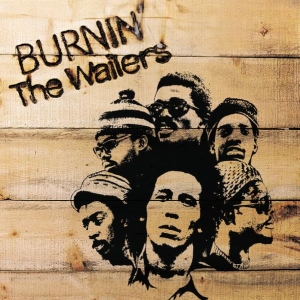
Burnin' is the sixth album by Jamaican reggae group the Wailers, released in October 1973. It was written by all three members and recorded and produced by the Wailers in Jamaica, contemporaneously with tracks from the Catch a Fire album with further recording, mixing and completion while on the Catch a Fire tour in London. It contains the song "I Shot the Sheriff". It was the last album before Marley, Peter Tosh and Bunny Wailer decided to pursue solo careers, while continuing their local releases through their company Tuff Gong Records. A commercial and critical success in the United States, Burnin' was certified Gold and later added to the National Recording Registry, with the Library of Congress deeming it historically and culturally significant.

Catch a Fire is the fifth studio album by the reggae band The Wailers, released in April 1973. It was their first album released by Island Records. After finishing a UK tour with Johnny Nash, they had started laying down tracks for JAD Records when a disputed CBS contract with Danny Sims created tensions. The band did not have enough money to return to Jamaica, so their road manager Brent Clarke approached producer Chris Blackwell, who agreed to advance The Wailers money for an album. They instead used this money to pay their fares back home, where they completed the recordings that constitute Catch a Fire. The album has nine songs, two of which were written and composed by Peter Tosh; the remaining seven were by Bob Marley. While Bunny Wailer is not credited as a writer, the group's writing style was a collective process. For the immediate follow-up album, Burnin', also released in 1973, he contributed four songs. After Marley returned with the tapes to London, Blackwell reworked the tracks at Island Studios, with contributions by Muscle Shoals session musician Wayne Perkins, who played guitar on three overdubbed tracks. The album had a limited original release under the name The Wailers in a sleeve depicting a Zippo lighter, designed by graphic artists Rod Dyer and Bob Weiner; subsequent releases had an alternative cover designed by John Bonis, featuring an Esther Anderson portrait of Marley smoking a "spliff", and crediting the band as Bob Marley and the Wailers.

Liberation is an album by the Jamaican musician Bunny Wailer, released in 1989 through Shanachie Records. Wailer supported the album with a North American tour. It was nominated for a Grammy Award, in the "Best Reggae Recording" category.
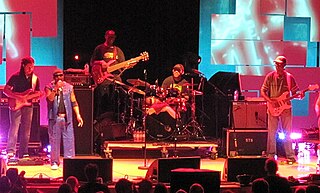
The Maytals, known from 1972 to 2020 as Toots and the Maytals, are a Jamaican musical group, one of the best known ska and rocksteady vocal groups. The Maytals were formed in the early 1960s and were key figures in popularizing reggae music.

Third World is a Jamaican reggae fusion band formed in 1973. Their sound is influenced by soul, funk and disco. Although it has undergone several line-up changes, Stephen "Cat" Coore and Richard Daley have been constant members.

Bob Marley and the Wailers were a Jamaican ska, rocksteady and reggae band. The founding members, in 1963, were Bob Marley, Peter Tosh, and Bunny Wailer.

Stephen Robert Nesta Marley is a Jamaican-American musician. The son of Bob Marley, Marley is an eight-time Grammy Award winner, three times as a solo artist, twice as a producer of younger brother Damian Marley's Halfway Tree and Welcome to Jamrock albums, and a further three times as a member of his older brother Ziggy Marley's group Ziggy Marley & The Melody Makers.
Joseph Benjamin Higgs was a reggae musician from Jamaica. In the late 1950s and 1960s he was part of the duo Higgs and Wilson together with Roy Wilson. He was a popular artist in Jamaica for four decades and is also known for his work tutoring younger musicians including Bob Marley and the Wailers and Jimmy Cliff.
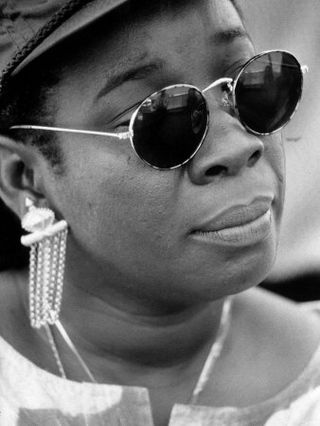
Alfarita Constantia "Rita" Marley is a Cuban-born Jamaican singer-songwriter and entrepreneur. She is the widow of reggae legend Bob Marley. Along with Marcia Griffiths and Judy Mowatt, Rita was a member of the reggae vocal group the I Threes, the backing vocalists for Bob Marley and the Wailers.
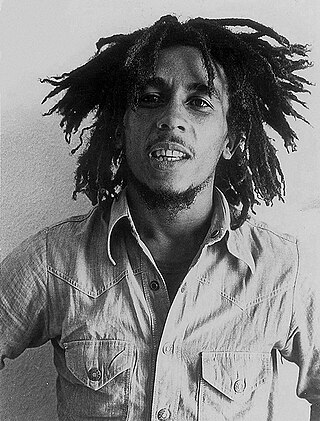
Robert Nesta Marley was a Jamaican reggae singer, guitarist, and songwriter. Considered one of the pioneers of the genre, Marley fused elements of reggae, ska, and rocksteady in his music and was renowned for his distinctive vocal and songwriting style. Marley's contribution to music increased the visibility of Jamaican music worldwide and made him a global figure in popular culture. Over the course of his career, Marley became known as a Rastafarian icon, and he infused his music with a sense of spirituality. He is also considered a global symbol of Jamaican music and culture and identity, and was controversial in his outspoken support for democratic social reforms. He also supported legalisation of cannabis, and advocated for Pan-Africanism. In 1976, Marley survived an assassination attempt in his home, which was believed to be politically motivated.
Andrew Tosh is a Jamaican reggae singer and the son of Peter Tosh. He is the nephew of reggae singer Bunny Wailer, also an original member of the Wailers. Andrew has a strong vocal resemblance to his late father and like his father, rides the unicycle.

Time Will Tell: A Tribute to Bob Marley is an album by Bunny Wailer, released through Shanachie Records in 1990. In 1991, the album won Wailer the Grammy Award for Best Reggae Recording.

Neville O'Riley Livingston, known professionally as Bunny Wailer, was a Jamaican singer-songwriter and percussionist. He was an original member of reggae group The Wailers along with Bob Marley and Peter Tosh. A three-time Grammy Award winner, he is considered one of the longtime standard-bearers of reggae music. He was also known as Jah B, Bunny O'Riley, and Bunny Livingston.

Winston Hubert McIntosh, OM, professionally known as Peter Tosh, was a Jamaican reggae musician. Along with Bob Marley and Bunny Wailer, he was one of the core members of the band the Wailers (1963–1976), after which he established himself as a successful solo artist and a promoter of Rastafari. He was murdered in 1987 during a home invasion.
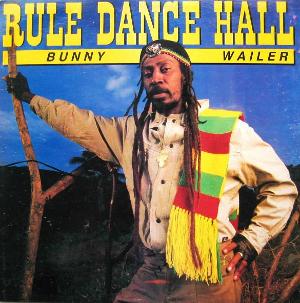
Rule Dance Hall is an album by the Jamaican reggae musician Bunny Wailer. It was released in 1987 via Shanachie Records.

Too Wicked is an album by the British band Aswad, released in 1990.
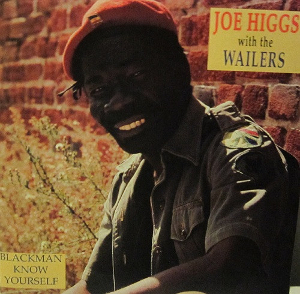
Blackman Know Yourself is an album by the Jamaican musician Joe Higgs, released in 1990. He is credited with the Wailers Band.

Pop 'n' Mento is the third album by Jamaican mento band the Jolly Boys, released in September 1989 by American label First Warning and British label Cooking Vinyl. The album was produced by American singer-songwriter Jules Shear, who discovered the Jolly Boys performing in a Port Antonio hotel. He digitally recorded the group in one take, using a minimal set-up to accommodate the group's acoustic instruementation. The record features a set of mento standards, and mixed elements from the genre's past with contemporary sounds.

Light Your Light is an album by the Jamaican band Toots and the Maytals, released in 2007. The band supported the album with a North American tour. The album coincided with Toots's 45th year as a recording musician.

















